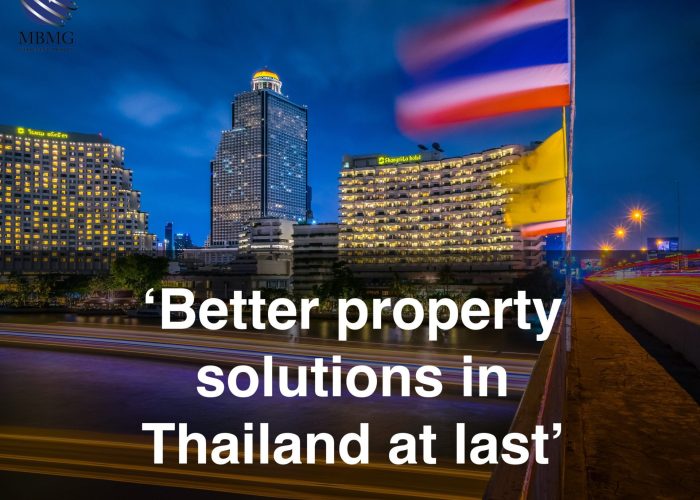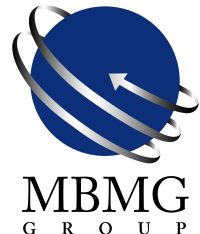
MBMG recommends that clients carefully review their property arrangements in light of the provisions of the 2019, Rights over Leasehold Assets Act. This act provides an alternative to many conventional long term property ‘ownership arrangements’, both for residential and commercial purposes and for foreigners who aren’t legally able to own land in Thailand and also for businesses whose commercial lease arrangements are becoming increasingly unviable due to changes in the Commercial Industrial Leasehold Act.
You or heirs can make the decisions for up to 30 years!
The Rights Over Leasehold Assets Act became legislation in October 2019 and is an alternative to the conventional immovable property lease under the Civil and Commercial Code (CCC). ‘This new Act is a big step towards enabling property and land ownership rights for periods of up to 30 years. It is more straightforward, in that it does not require or depend on the specific clauses of a written agreement but simply on the registration of the transfer of the rights. This removes the sometimes ludicrously onerous clauses in typical lease agreements such as returning the house or property in the same condition as it was 30 years previously, or disallowing subletting or charging annual land fees or defining the arrangements, sometimes in an unhelpful or costly way for monthly utilities payments.
You can make changes to the property or even use your rights as security (e.g. for a mortgage)
A rights holder under the new agreement (the worst part is that we don’t know how to describe them – a lot more than a tenant but not quite an owner) is free to sublease the property or to modify or have work done to the property (although of course other legislation might still apply such as The Condominium Act 2010) or even to mortgage the rights, without the owner’s prior permission. The owner must effectively wave goodbye to their control of the property, and expect to receive back only the bare asset (e.g. just land if it’s a house and land asset).
No need to state the right of inheritance in an agreement
The rights over leasehold asset is automatically inheritable while the conventional Thai lease requires the inheritance of the lease to be written into the agreement otherwise the land and property will be returned back to the lessor (or their heirs) on death of the lessee (a conventional lease can be for up to 30 years or for lifetime of the lessee according to clause 541 of the CCC).
What if the owner wants to terminate?
It’s possible for the land or property owner to terminate the rights but only once the owner and the rights holder come to an agreeable settlement, having also ensured that there are no other parties, such as sub-tenants who might be renting all or part of the property from the rights holder, are disadvantaged. The rights over the leasehold asset can’t be sold or transferred onward by the rightsholder.
No illegal dwellers permitted
The rights holder must ensure that there are no illegal dwellers processing the land. This is because in Thailand after 10 years squatters can claim their right to the ownership of the land that they possess.
Conventional lease is subject to a growing number of legislative changes
This 2019 Act was spearheaded to help the property sector because the conventional lease not only requires an agreement which might be easily broken, but is also subject to a growing number of other clauses in the Civil and Commercial Code, that increasingly came into conflict with the express intentions and terms of lease agreements.
Some major benefits for Commercial properties worth reviewing
The 2019 Act therefore can simplify or clarify arrangements compared to commercial leases and in some respect supersedes the Lease of Immovable Property for Commercial and Industrial Purposes Act. This has many of the characteristics of the 2019 Act but subsequent revisions to the Commercial and Industrial Leasehold Act have infringed upon the practicality of the conventional commercial lease and, for example, prevents a property from being both residential and commercial. This is not the case with the 2019 Act, where split usage isn’t prohibited.
Expert review of the pros/cons of the New Act for You & Negotiate
MBMG’s legal team’s unrivalled expertise of the 2019 Act is made available in a service providing bespoke reviews of the Act as it might relate to your particular circumstances. In a turn-key service, they also can negotiate with landowners. This service can help foreigners who has or is considering entering into a long-term residential property structure or any nationality who has or is considering entering into commercial property lease. We can highlight the risks of maintaining or drawing up an agreement under the laws that determine the conventional leases.
The 2019 Act is a cleaner piece of legislation for Commercial Leases
For the conventional commercial lease it would seem to be even more important to examine the benefits of the 2019 Act as there appears to have been several legislative modifications and additions relating to commercial leases that might create future problems for your business, but which is not the case with the 2019 Act.
Government Fees and Taxes
Both the owner and rights over the asset can obtain a certificate showing the transfer of ownership rights at a cost of THB 10,000 from the land department and/or can have an agreement to the same extent. The registration fee is a flat THB 20,000, and the transfer tax is 2% of the capital value, or THB 1,000 in the case of no capital value (the same in the case of inheritance).
For more information and to speak with our advisor, please contact us at [email protected] or call on +66 2 665 2534.



